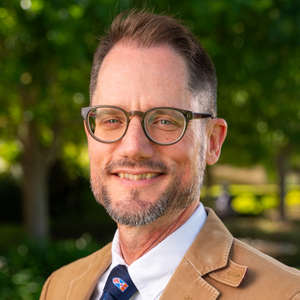While seminary graduates frequently express gratitude for their education, most also have a list of items colloquially entitled “Things Seminary Didn’t Teach Me!” The latest example we have seen is whether or not to celebrate the Lord’s Supper while churches are not able to meet together physically. Can a church celebrate communion via video conference? Churches have been divided on this, as some have decided to wait on having communion until the church body is physically back together again while others are having some form of virtual communion.
Most of the items on the list “Things Seminary Didn’t Teach Me!” deal with unusual situations. Trying to decide what to do about the Lord’s Supper in the middle of a pandemic is certainly one of those topics! This kind of list can be amusing and a helpful way to express frustration during crisis situations. However, it does somewhat misunderstand the role of a seminary education: it is not to provide all of the answers to whatever situation you might find yourself in, but to give you the tools to make good decisions when you encounter those difficult situations.
Just as an example, here are a few thoughts on the topic based on the fields of study that one goes through in seminary. Some lean slightly towards not having communion during a virtual church meeting (some strongly so). We hope that this not only helps spark conversation about this particular issue but also reminds us of the importance of a broad seminary education.
Old Testament Studies Perspective – Charlie Trimm
The Passover was a major event in the sacred calendar that was to be celebrated on the fourteenth day of the first month (Lev 23:5). However, on at least two occasions it was celebrated a month late. In the first case, Moses allowed those who were unclean on that day to celebrate it together a month later (Num 9:6-13). Much later, during Hezekiah’s reform not enough priests were consecrated to properly celebrate Passover, so the entire nation celebrated it a month later (2 Chronicles 30). While obviously not the same as a pandemic, they bear enough similarity to make me think that it is more important to wait and properly celebrate the festival than to celebrate it earlier in a less than ideal manner. To learn what the “proper” way is to celebrate the Lord’s Supper, we can turn now to New Testament Studies, Theology, and Church History.
New Testament Studies Perspective – Darian Lockett
The New Testament teaches that on the night Jesus was betrayed, he instituted the Lord’s Supper—giving the Passover meal fuller meaning (Luke 22:19–20). Paul instructs the Corinthians to “clean out the old leaven so that you may be a new unleavened batch, as you are. For Christ our Passover lamb has been sacrificed. Therefore, let us observe the feast…” (1 Cor 5:7–8). He goes on to teach the church how to observe the Lord’s Supper in chapter 11. No fewer than five times Paul mentions the church celebrating the Lord’s Supper when you all “come together as a church” (1 Cor 11:17, 18, 20, 33, 34). In this context Paul is concerned over how members of the church at Corinth were eating their own, private meal (1 Cor 11:21)—this was the opportunity to make the Lord’s Supper the context of exacerbating social and economic divisions in the body—those with plenty of means ate, those without did not.
The reason the gathered community had to come together is at least twofold. First, Paul warns that when eating and drinking a Christian must not do so in an unworthy manner, one should not fail to “discern/recognize the body” (1 Cor 11:29). There is much debate regarding what exactly Paul means by “discern the body” (discern the body and blood of Jesus, discern the gathered body of Christ, etc.); however, such discernment or recognition would suggest the need to be present in the gathered community--to know each other and be part of each other’s lives, something needing to be done in community. Second, Paul teaches that the sharing in the cup and the bread is sharing in the blood and body of Christ. He insists “Because there is one bread, we who are many are one body, since all of us share the one bread” (1 Cor 10:17). Even when symbolic representation of one loaf is not preserved in the strictest sense (there might be too many people to all eat from the same loaf, or some might need a gluten free option), partaking of one bread together is an important sign pointing to the reality of our unity as one body. Everyone using their own bread (or whatever is to hand in the kitchen at the moment) would stretch this symbolic connection to the breaking point.
A final thought that is more implicit from the narratives in the Synoptic Gospels is the fact that Jesus himself served his disciples the meal. When we come together and are served the meal by the ordained minister we are reminded that we do not provide this meal for ourselves, it is not something we can make, or provide; rather, it is a free meal prepared and served to us by our Lord Jesus Christ.
Theological Studies Perspective – Uche Anizor
Darian's thoughts sum up the approach I would take. But here are some further reflections. A lot of this turns on how much we define the church as a physical, spatial, gathered community. As much as we might be thankful for technology that enables forms of social engagement and connection, to meet on Zoom is not to gather in the truest sense. How would taking it "together" via some (even synchronous) online vehicle differ significantly from families doing the Lord's Supper at home before coming to church, or whenever they'd like? If I were overseas, and my church family in the US was eating the LS, would I be eating the meal with them if I chose to have it at precisely the same time they are? It defies the whole idea of eating together. We are not eating together. So, I think it's perfectly okay and preferable to delay its observance until a better time.
Church History Perspective – Darian Lockett
The Heidelberg Q 28 asks: How does the Lord's Supper remind you and assure you that you share in Christ's one sacrifice on the cross and in all his gifts?
A: In this way: Christ has commanded me and all believers to eat this broken bread and to drink this cup. With this command he gave this promise: First, as surely as I see with my eyes the bread of the Lord broken for me and the cup given to me, so surely his body was offered and broken for me and his blood poured out for me on the cross. Second, as surely as I receive from the hand of the one who serves, and taste with my mouth the bread and cup of the Lord, given me as sure signs of Christ's body and blood, so surely he nourishes and refreshes my soul for eternal life with his crucified body and poured-out blood.
How do we "see" and "receive from the hand of the one who serves" remotely?
Westminster Confession of Faith 29.4: "Private Masses, or receiving this sacrament by a priest, or any other, alone;...are contrary to the nature of this sacrament, and to the institution of Christ." Taking communion at home could very well be considered taking the meal alone. Further, making a compromise now, in an extraordinary time, could lead to people thinking well, we did it virtually before, perhaps we can continue doing it now too..I like church from my couch!
Theologically and pastorally it is really important to distinguish between Eucharist and a common meal. Eating bread and drinking wine do not nourish me spiritually, I am not "spiritually feasting on Christ" and thereby receiving a means of grace. But when observing the sacrament together in the right way, Christ's real, spiritual presence brings renewing grace to all who partake in a worthy manner.
In sum, this study shows how the different areas of study in a seminary education can provide help in a variety of different unusual situations. In this particular case, the Bible clearly does not give direction guidance for how to conduct a church service during a pandemic. However, the lines of thought described above lead the three of us to conclude that we should not celebrate communion virtually. Instead, we should wait in hope for the time when the church gathers together again and we can celebrate as the reunited body of Christ with the Lord’s Supper. Indeed, the time of delayed fellowship reminds us of the hope we always have of the new creation in the future, when we can celebrate perfect fellowship with God and his people.
 Biola University
Biola University


.jpg)

.jpg)
.jpg)